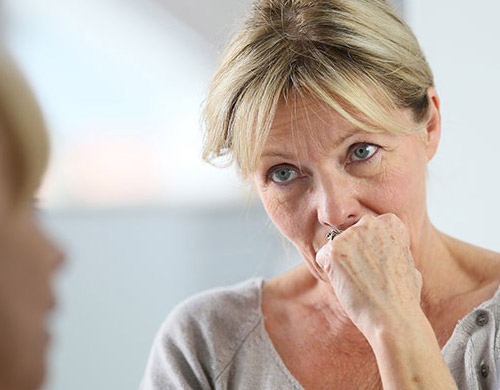It can be so lonely when you or a loved one has struggles with drug or alcohol dependence, that you don’t know how to approach it. Fortunately long term recovery can be achieved if you adopt proven rehabilitation methods because addiction is treatable.
We will explain how a sober future is possible for you or someone you care about if an holistic treatment method is explored.
What is Addiction Rehab (Rehabilitation)?
When we talk about ‘rehab’ for addiction, it includes the psychological interventions and medical treatments needed to address dependencies on substances such as benzodiazepines and illegal drugs including cocaine. There is no ‘one size fits all’ approach to addiction rehab because it should be tailored to your lifestyle and may include medical detox, inpatient and outpatient care, and long-term relapse prevention programs.

Facts & Statistics about Addiction in Murrieta
Prevalence of Substance Use Disorder, by Drug Type
(IN THOUSANDS)
- 2,7578.5%Any Substance
- 2,0886.4%Alcohol
- 1,0683.3%Ilicit Drugs
- 2060.6%Pain Medication
Drug- and Alcohol-Induced Deaths by Age Group, California, 2016
- Alcohol-Induced
- Drug-Induced
- 18 to 250.5
- 9.6
- 26 to 354.3
- 13.9
- 36 to 6424.2
- 22.9
- 65+23.7
- 9.4
Drug Use, by Selected Type and Age Group California, 2015 to 2016
- 12 to 17
- 18 to 25
- 26+
- Marijuana*13.2%
- 34.0%
- 13.5%
- Misuse of Pain Medications3.5%
- 8.0%
- 4.3%
- Cocaine0.8%
- 7.2%
- 1.8%
- Heroin0%
- 0.4%
- 0.2%
What are the treatment options available in Murrieta?
Understanding and healing the primary causes behind your substance or alcohol addiction can be achieved through the use of an holistic treatment model. It is crucial to treat the symptoms of addiction, but coping strategies need to be implemented, in order for you to work with the issues that lead to the drug or alcohol dependency.

Private Residential Programs
Living at a addiction rehab center and having all of your treatments there is what’s known as a residential rehab program. The key benefit is being able to have integrated support and treatment every day. By moving out of your home environment and into a rehab center, you can protect yourself from any potential triggers that are partly responsible for you developing a drug use disorder.
Successfully completing your residential rehab program and avoiding relapse is considerably easier if you stay in a protective and supportive environment. Those who have dual diagnosis, co-occurring disorders or severe dependencies are recommended to enroll for an inpatient rehab program.
Taking part in a residential rehab program is an effective way to get sober, and sustaining it demands continued focus because maintaining recovery is a challenge during the first year. After you finish your residential addiction treatment program your priority will be on transitioning to greater independence as you focus on what you want from your life free from drugs or alcohol.
Do You Need Help?
We work together towards recovery.

Sober Living Programs
A sober living program will encourage you with necessary skills you need, using compassion and understanding. You can anticipate:
- A house manager who checks up on you throughout the day
- Supporting you on the right way to behave in recovery
- Fostering important friendships with others in recovery who recognize your challenges and your experiences
Outpatient Programs
Outpatient rehabilitation programs are considered to be flexible and allow you to have therapy at the rehab center and continue any career or family obligations.
Outpatient programs assist you with:
- Education around substance misuse
- Therapeutic support and counseling involving group therapy and one-on-one interventions – The duration of any outpatient treatment is customized to your needs and lasts from three months to more than a year.
Detox Only Programs
The early stage of a rehab program is detoxification, which eliminates any substances from your body and addresses your dependency on it. You usually undergo withdrawal symptoms as a normal reaction to the absence of the substance in your system.
This detox phase marks the beginning of the rehabilitation journey, the next phase is to confront and address the underlying problems that lead to your addiction, so that those same issues do not happen again. Many substances cause withdrawal and cravings for a long time after they have been cleared from your system. Building on important skills can minimize your odds of relapse as you adapt to your new life.
Paying for Private Treatment
If you decide on private rehab, you can fund treatment yourself or make a claim through your healthcare policy Fortunately, most health insurance providers will cover at least some of your rehab treatment, such as detox, rehabilitation, medicines that are prescribed and post-rehab support.
Your provider and policy terms and conditions will determine how much cover you can claim for. Always confirm the amount you can claim from your cover before you enroll in a treatment program. Click on our Verify Your Insurance page to find out about the cover you qualify for.
If you do not make a claim against your insurance provider you must pay the center directly for your rehab treatment. Some treatment centers will provide a payment plan to those who are unable to pay the full cost of rehab.
State Funded Programs
If you are struggling with drug or alcohol use disorder and little to no financial means to fund private treatment, you may be qualified for a state-funded rehabilitation program. Assistance can be provided with funds provided from Medicaid and state/federal budgets, these types of programs can subsidize your recovery with:
- Medically-supervised drug/alcohol detox
- Addiction Rehabilitation and aftercare services.
State-funded rehab programs are important to people who do not have private health insurance or who live in low income households. When applying you will be asked for:
- You live where you say you do
- Any income or earnings
- Evidence about your drug or alcohol addiction
- Living in the US legally
Extensive information about the application process can be found on https://www.grants.gov/
This booklet has contact details for your state agency.

The following state-funded addiction rehab programs are available in Murrieta:
Ranch Creek Recovery Inc
25650 Bass Point, Murrieta, CA 92562
951-696-9200
https://ranchcreekrecovery.com/Resilience Rehabilitation LLC R Rehab
25207 Parkcrest Drive, Murrieta, CA 92562
888-772-5191
https://www.rrehab.org/SCE Corp Solution Based Treatment and Detox
41017 Arron Court, Murrieta, CA 92562
877-309-4311
https://www.solutionbasedtreatment.com/
Maintaining Addiction Recovery in Murrieta
You may notice some initial difficulties when first leaving treatment. The rehab environment was controlled and safe, and you were given professional support. As you adjust to life after rehab it is very likely that you will find yourself in situations that you still need to learn to address. If you had a severe dependency or if you leave rehab without the appropriate social support, you will find long term recovery to be more challenging. Without the relevant support and aftercare to guide you in your new life, relapse is a real possibility.
The following AA/NA meetings are available in Murrieta:
BOTTOM DWELLERS GROUP
Closed: 41640 Corning Place, Murrieta, CA 92562
Wednesday: 7:00 pm
https://www.drugstrategies.org/JUNCTION GROUP
Open: 41640 Corning Place, Murrieta, CA 92562
Wednesday: 7:00 pm
https://www.drugstrategies.org/AA - ABSI Murrieta
As Bill Sees It, Open and Women:
24652 Adams Avenue, Murrieta, CA 92562
Monday: 12:00 pm – 1:30 pm
https://alcoholicsanonymous.com/
Aftercare & Alumni Programs
An aftercare program is a resource to support your recovery when you go back to your daily life. By taking part in extended support, you can reduce the risk of relapse which hurts as many as 60% of people who have recently finished a program. It is an essential service provided by most treatment centres.
Once you are close to completing your rehab program, you will consider the therapies and counseling services most beneficial to your needs long-term, and a relapse prevention program will be created to help you sustain from drinking or taking drugs. After the successful completion of your addiction treatment program you will become eligible to join an alumni community program so you can remain in contact with staff and others in recovery.

With the help from this network you will have access to social events and receive motivation and advice from other members who are in recovery as well. You will also have the opportunity to reciprocate in the program by supporting other people if you like.
Support Groups (Fellowship Meetings)
Support groups are an integral component of long-term recovery because social responsibilities motivate long-lasting sobriety. Recovery support groups including AA (Alcoholics Anonymous) and NA (Narcotics Anonymous) provide regular support utilizing the 12-step model and local weekly meetings.
By attending nearby support group sessions you will listen to, and understand, the lived experiences of other individuals. Many people in recovery attend local meetings to assist them in the early and later stages of addiction recovery. Support groups provide them with vital tools to stay away from substances, allowing them to take responsibility for their actions to themselves and others.
Support for Families & Children Affected by Addiction
Addiction damages relationships for everyone in a household to varying degrees. The person with the dependency needs help, but other family members need support and guidance too. By joining family support groups, you can manage stress more effectively, and be able to provide better to your loved one in recovery.
Some helpful support groups for families and children affected by addiction include:
- Parents of Addicted Loved Ones
- SMART Recovery Family & Friends
- NAMI Family Support Groups
- Al-Anon
- Families Anonymous
- Alateen
- Nar-Anon










